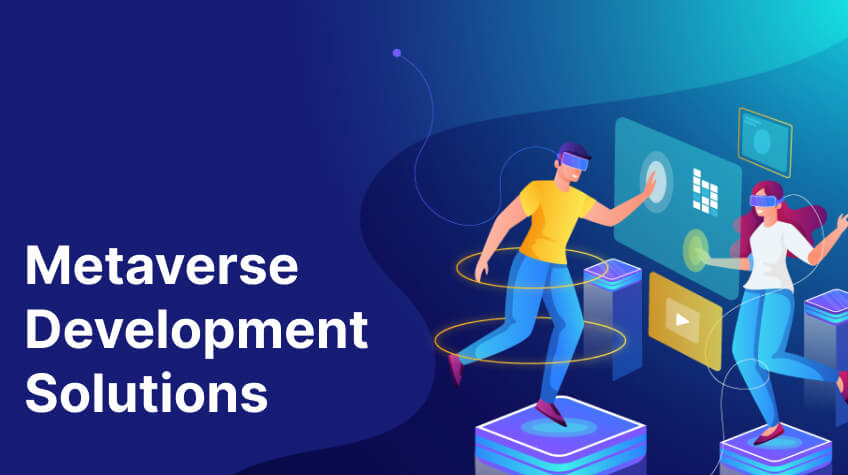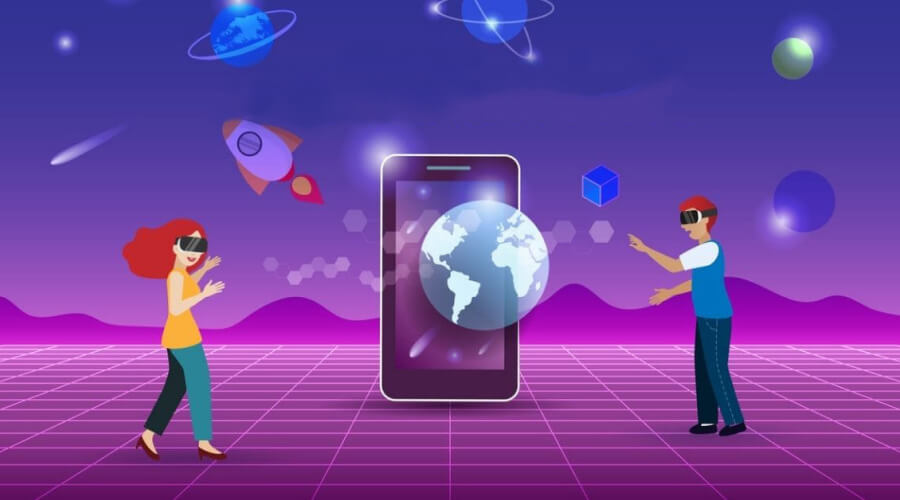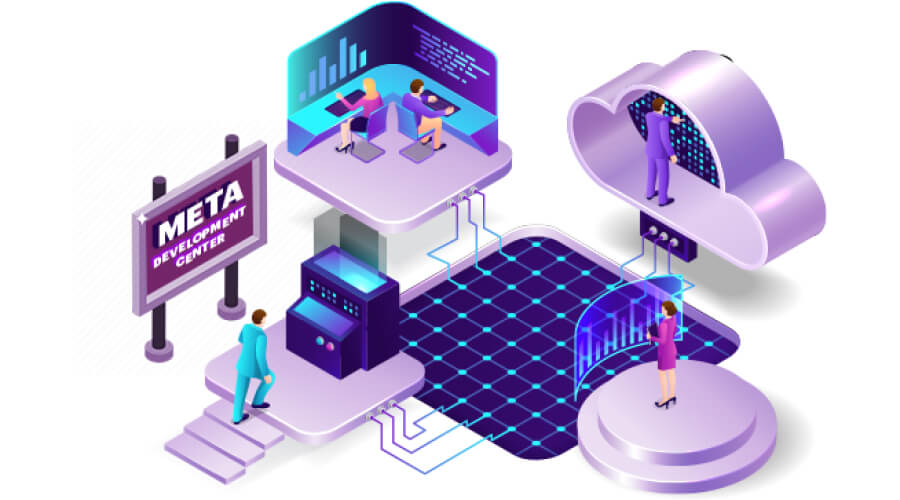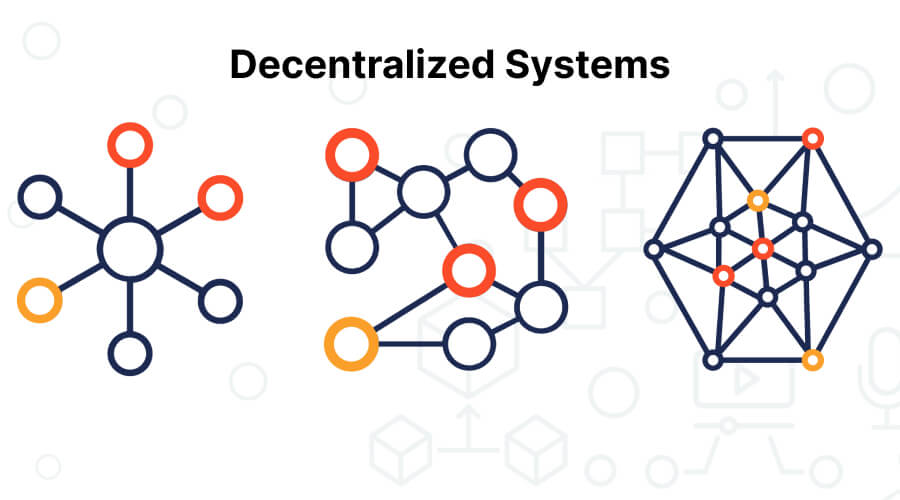
The digital landscape is constantly evolving, and with the rise of blockchain technology and the concept of the metaverse, there is a growing need for secure decentralized systems. This article aims to explore the world of metaverse development solutions and how they can be utilized to launch a secure decentralized system. By harnessing the power of blockchain technology and its associated benefits, businesses and individuals can establish a trusted and transparent digital environment.
Introduction to Decentralized Systems and Metaverse Development Solutions
Decentralized systems refer to a network architecture where data and decision-making are distributed across multiple nodes or participants. Unlike traditional centralized systems, decentralized systems offer enhanced security, privacy, and resilience. On the other hand, the metaverse represents a virtual universe that encompasses various interconnected digital experiences, including virtual reality, augmented reality, and gaming.
Benefits of Launching a Secure Decentralized System
By launching a secure decentralized system, businesses and individuals can reap numerous benefits. Firstly, enhanced security and data privacy are achieved by eliminating single points of failure and vulnerabilities inherent in centralized systems. This ensures that sensitive information remains protected from unauthorized access and manipulation. Additionally, removing central authorities from the equation fosters a sense of trust among participants and eliminates the need for intermediaries.
Understanding Metaverse Development Solutions
Metaverse Development Company in Dubai plays a pivotal role in harnessing the power of blockchain technology to build and shape the metaverse. These companies leverage their expertise in blockchain development, virtual reality (VR), augmented reality (AR), and other emerging technologies to create immersive and interactive virtual environments. By combining blockchain’s decentralized infrastructure with innovative development approaches, Metaverse Development Companies in Dubai are at the forefront of creating cutting-edge experiences and pushing the boundaries of what is possible in the metaverse.

Key Components of a Secure Decentralized System
Several key components contribute to the security and functionality of a decentralized system. Firstly, blockchain technology, coupled with smart contracts, ensures transparency and trust by automating and enforcing predefined rules and agreements. Identity management and authentication mechanisms play a crucial role in establishing the identity of participants and verifying their actions. Moreover, consensus mechanisms, such as proof-of-work or proof-of-stake, ensure decentralization and prevent malicious actors from gaining control.
Ensuring Security in the Metaverse
As the metaverse becomes more prevalent, ensuring security within this virtual realm is paramount. Secure digital asset management is essential to protect valuable virtual possessions from theft or loss. Encryption protocols and privacy mechanisms safeguard sensitive data and communications from unauthorized access. Additionally, robust security measures must be in place to mitigate hacking attempts, fraud, and other cybersecurity risks.
Implementing Metaverse Development Solutions
Implementing metaverse development solutions involves several steps. Firstly, choosing the right blockchain platform is crucial, as different platforms offer varying capabilities and features. Considerations such as scalability, interoperability, and developer-friendly tools should guide this decision-making process.

Once the blockchain platform is selected, the next step is to build a decentralized application (DApp) that will serve as the interface for users to interact with the metaverse. This involves designing and developing smart contracts that define the logic and rules of the application. Smart contracts are self-executing agreements that run on the blockchain, ensuring transparency and automation of processes.
Interoperability is another important aspect to consider when implementing metaverse development solutions. The metaverse is expected to be a complex and interconnected ecosystem, with various virtual worlds, platforms, and applications. Ensuring that different components can seamlessly interact and exchange data is crucial for a cohesive metaverse experience.
Challenges and Future of Secure Decentralized Systems
While the potential of secure decentralized systems and the metaverse is immense, there are still challenges to overcome. One significant challenge is regulatory hurdles and compliance. As the metaverse becomes more mainstream, governments and regulatory bodies will need to establish frameworks to govern virtual assets, transactions, and user interactions. Striking a balance between innovation and regulation will be crucial to foster the growth of the metaverse.

Integration with existing systems and industries is another challenge. The metaverse has the potential to revolutionize various sectors, such as gaming, entertainment, education, and commerce. However, integrating these industries into the metaverse seamlessly requires collaboration and adaptation from both traditional businesses and metaverse developers.
The future of secure decentralized systems and the metaverse is exciting. As technology advances and user adoption grows, the metaverse will become more immersive and interactive. Virtual reality and augmented reality technologies will enhance the metaverse experience, blurring the boundaries between the physical and digital worlds.
The Last Wise Words
Launching a secure decentralized system with metaverse development solutions offers numerous advantages, including enhanced security, transparency, and trust. By harnessing the power of blockchain technology and implementing robust security measures, businesses and individuals can establish a digital environment that fosters innovation and collaboration.
As the metaverse continues to evolve, it is crucial to address challenges such as regulatory compliance and integration with existing systems. By overcoming these obstacles, the metaverse has the potential to revolutionize industries and create new opportunities for businesses and individuals alike.
Frequently Asked Questions (FAQs)
- What is a decentralized system?
A decentralized system refers to a network architecture where data and decision-making are distributed across multiple nodes, eliminating the need for a central authority.
- What is the metaverse?
The metaverse is a virtual universe that encompasses interconnected digital experiences, including virtual reality, augmented reality, and gaming.
- How does blockchain technology contribute to the metaverse?
Blockchain technology provides the foundation for secure and transparent interactions within the metaverse, enabling ownership of digital assets, decentralized applications, and digital identities.
- What are the key components of a secure decentralized system?
Key components include blockchain technology, smart contracts, identity management and authentication, and consensus mechanisms for decentralization.
- What challenges does the metaverse face?
Challenges include regulatory hurdles, integration with existing systems and industries, and the evolution of the metaverse’s impact on society.






